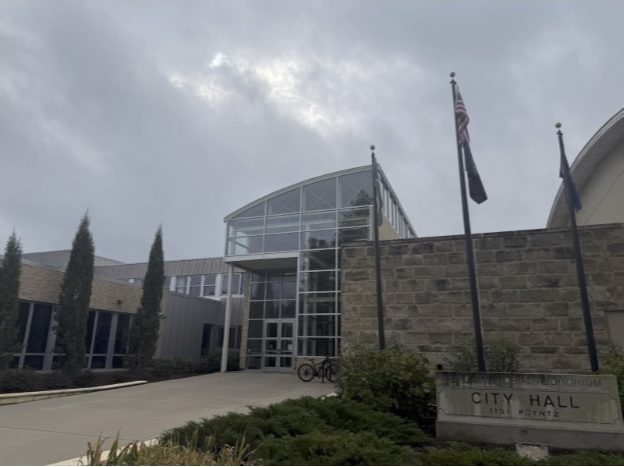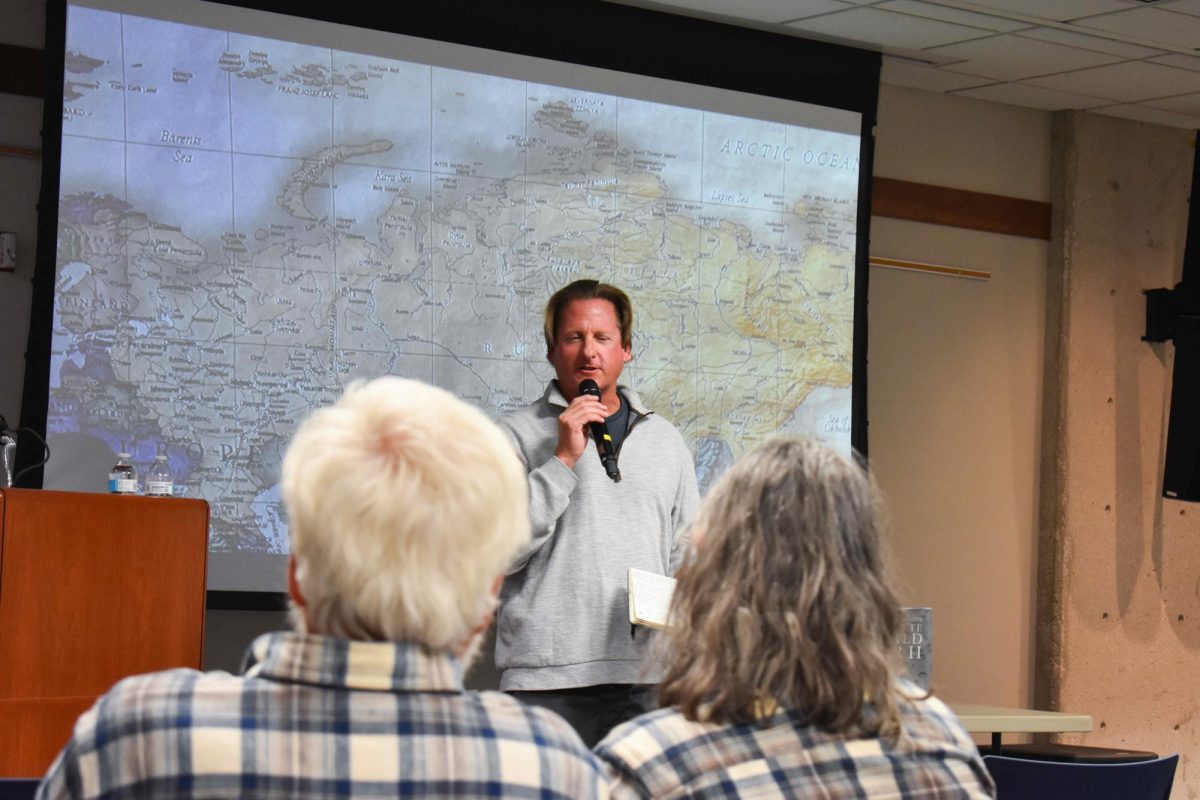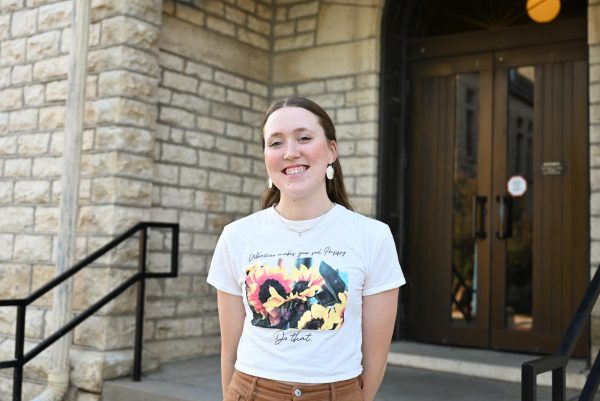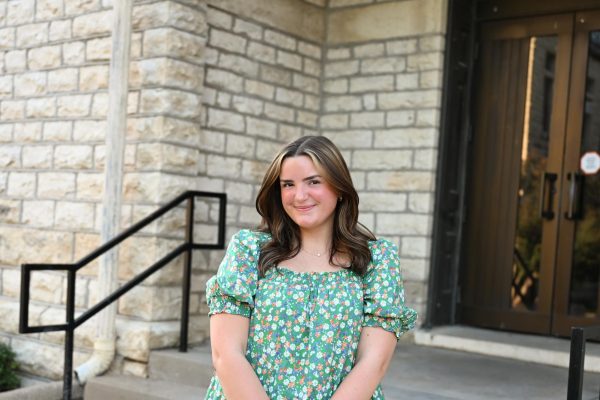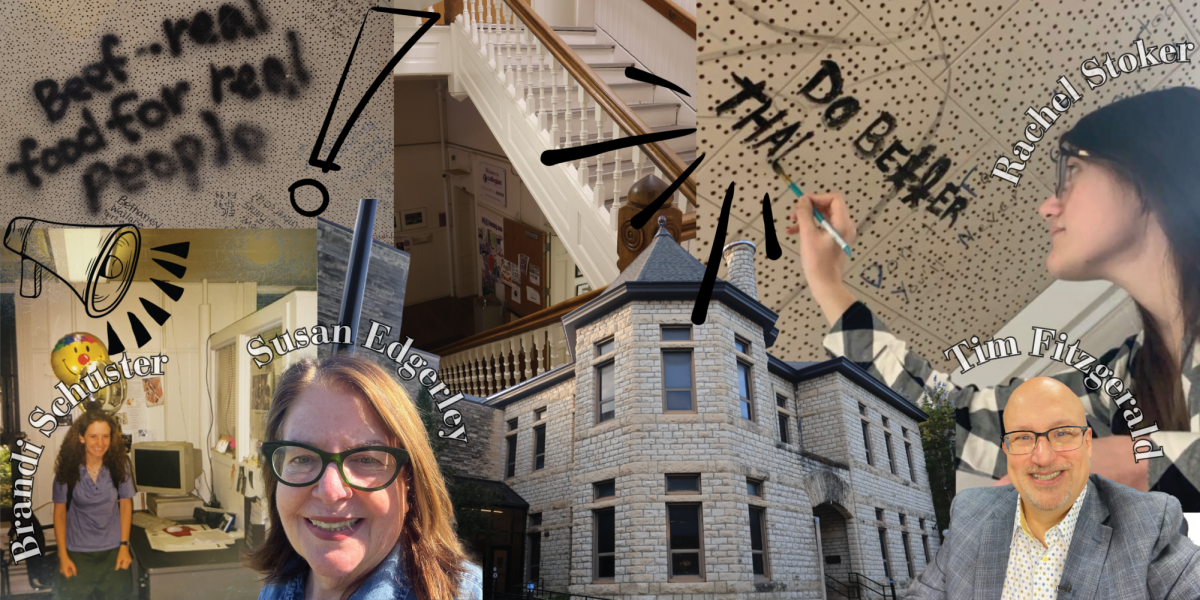The Riley County Historical Museum hosted a fireside chat Tuesday, highlighting the Russian Revolution, or “World War One and 1/2,” and promoting community interest for Veterans Day.
Katherine Hensler, director of the Riley County Historical Museum, oversees operations, staff, programming and exhibits. She said the fireside chats are a chance for Manhattan residents to come together and talk about history in a technology-free zone.
“So what we normally like to do is have a big over-watching national, international topic, and we like to tell the general story about what’s going on in the world at that time surrounding that topic and then connect it to a local Riley County story,” Hensler said. “Oftentimes we do themes. So with November being Veterans Day, we chose something that’s military related.”
Jed Dunham, a 1996 Kansas State graduate and historian, was the chosen speaker for this month’s fireside chat. He said he’s always looking for an opportunity to pick up a microphone.
“I just enjoy being with the people,” Dunham said. “I’ve said I love telling a story, but I love the people coming together, that vibe that we get when there’s human beings in the room.”
Dunham divided his presentation into three parts: the Revolution, the Bolshevik coup d’état, and the Civil War. Through this, he explained Lenin’s seizure of power and how Lieutenant Ernest Doryland, K-State agronomy graduate from the class of 1914, was deployed there.
Doryland was one of K-State’s 48 fallen in WWI. He was stationed in the Philippines when the war broke out and was eventually sent to Russia with the 27th Infantry in the summer of 1918.
“I don’t think anyone in the 27th Infantry Regiment who was actually over in Vladivostok in Russia at the time, really understood why they were there, especially once Nov. 11, 1918 happened and the armistice was signed,” Dunham said. “What were they still doing there in the winter of 1919? Well, they got stuck in the Civil War, trying to protect [Czechoslovakians] … this allied force of Japanese soldiers, British soldiers and American soldiers.”
After his service, Doryland returned to the Philippines and died during a medical operation.
Manhattan resident Lowell Regehr said he attended the event because he wanted to learn more about Russian history.
“My wife and I have traveled to Russia twice previously, and so we’ve long been interested in
Russian history, and … she studied Russian culture and Russian language at KU many years ago when she was a grad student,” Regehr said. “We’re very interested in the Ukraine war and the future of Ukraine, as well as the future of Russia, and we are very saddened by what’s going on there right now.”
Dunham said he wanted everyone who attended to “come away with a human connection.”
“I was hoping that people would come away realizing that, ‘Hey, we’re all connected as human beings.’” Dunham said. “What might have happened in this dark part of history in the Russian Revolution really isn’t all that different from what I would do in the same kind of situation … Regardless of where we are, what’s happening, or what the conditions are, we’re all human beings.”

